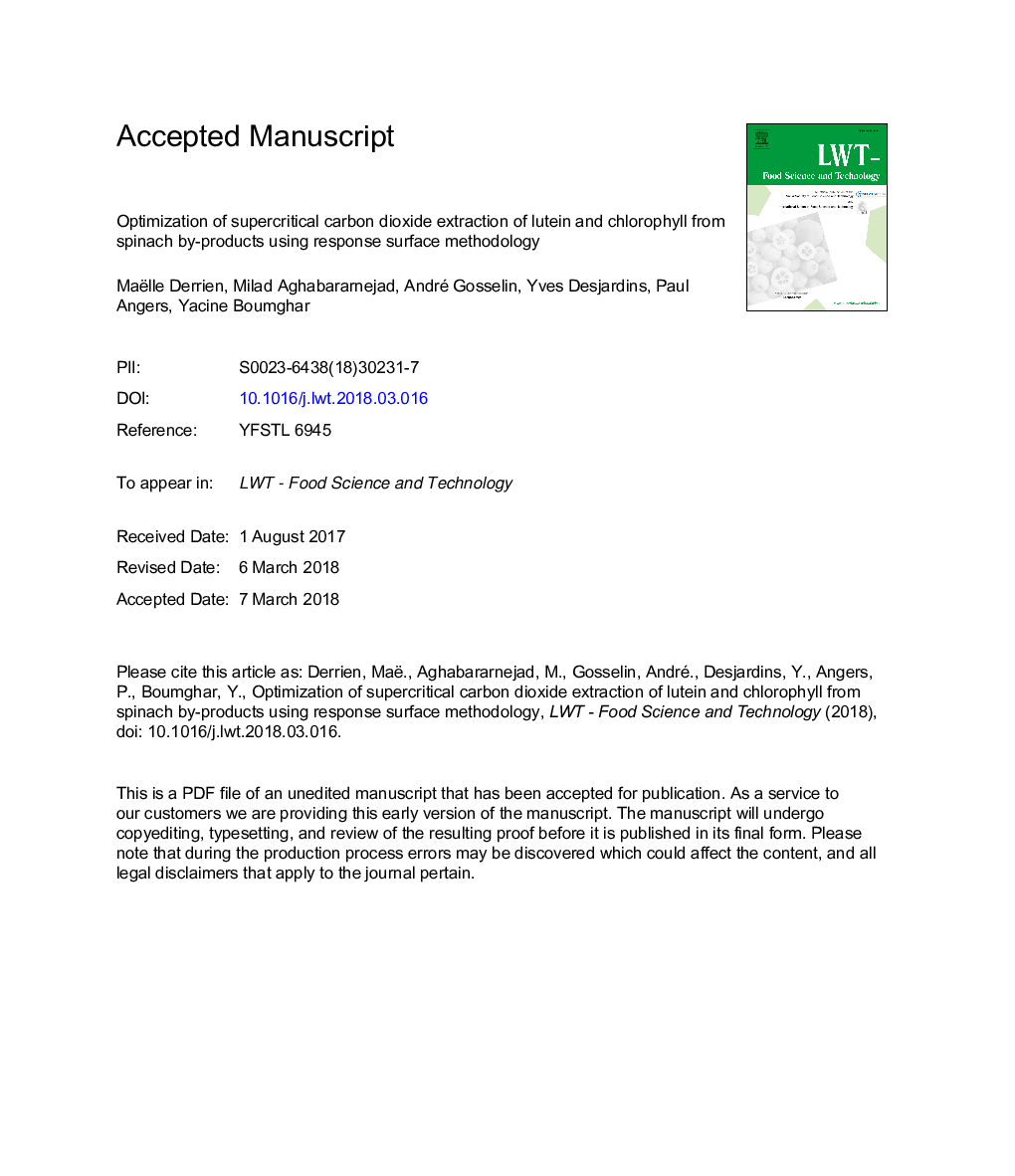| Article ID | Journal | Published Year | Pages | File Type |
|---|---|---|---|---|
| 8890913 | LWT - Food Science and Technology | 2018 | 38 Pages |
Abstract
Industrial vegetable wastes contain high amounts of valuable molecules and constitute a valuable source of bioactive compounds providing health benefits. Spinach (Spinacia oleracea), a green leafy vegetable, is known to its valuable phytochemical's content. However, its production yields about 25% of wastes that can be valorized for the production of value-added food supplements. This work focuses on the development and optimization of sustainable extraction using supercritical CO2 (SC-CO2) of the lutein and chlorophyll, two health functional molecules, from spinach by-products. Box-Behnken experimental design was used to optimize the process variables: pressure (10, 30, 50â¯MPa), co-solvent percentages (0, 5, and 10% (v/v), temperature (40, 50, 60â¯Â°C), time (1, 3, 5â¯h). It was found that the optimum extraction parameters were at temperature of 56â¯Â°C, extraction time of 3.6â¯h, pressure of 39â¯MPa, and 10% ethanol as cosolvent. Under these conditions, a yield of 72% lutein and 50% of chlorophyll was obtained.
Related Topics
Life Sciences
Agricultural and Biological Sciences
Food Science
Authors
Maëlle Derrien, Milad Aghabararnejad, André Gosselin, Yves Desjardins, Paul Angers, Yacine Boumghar,
